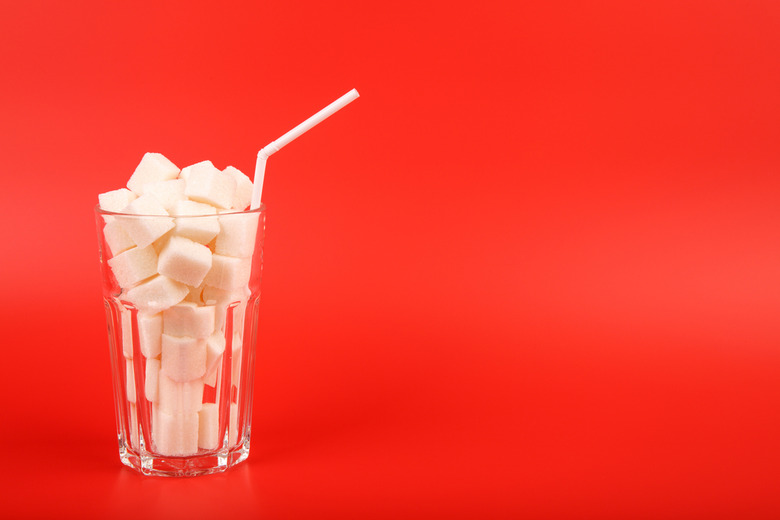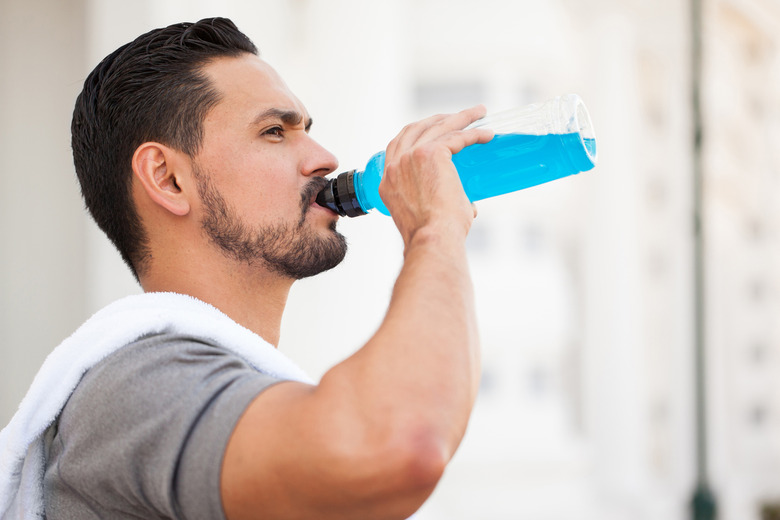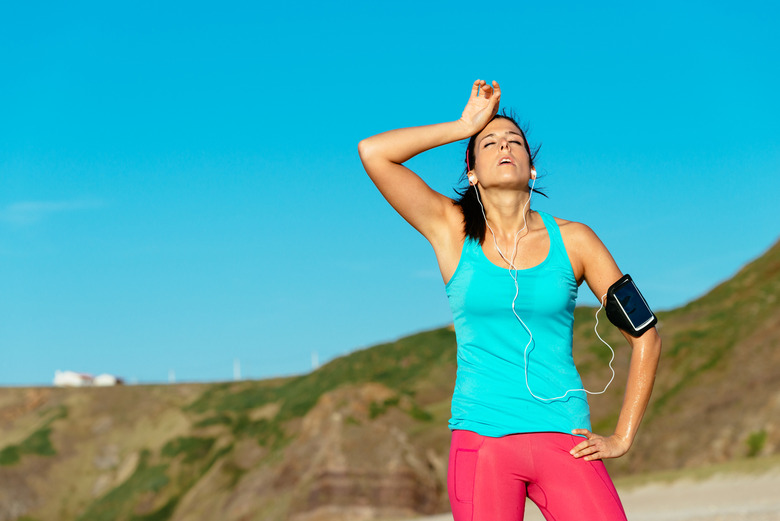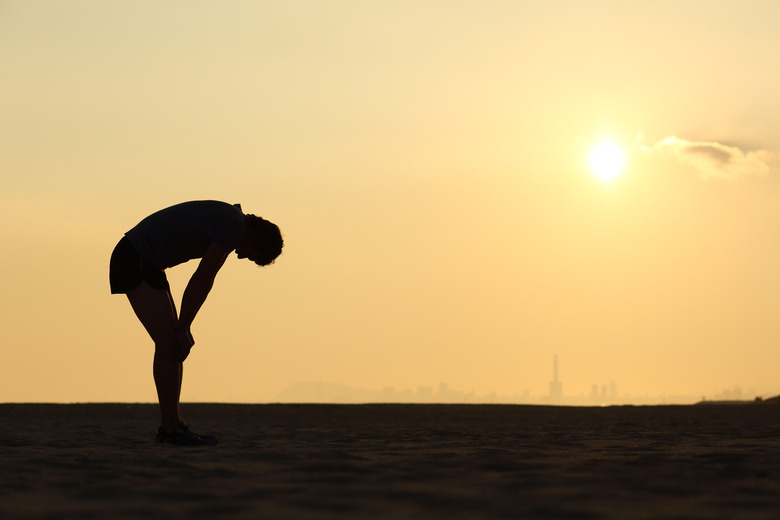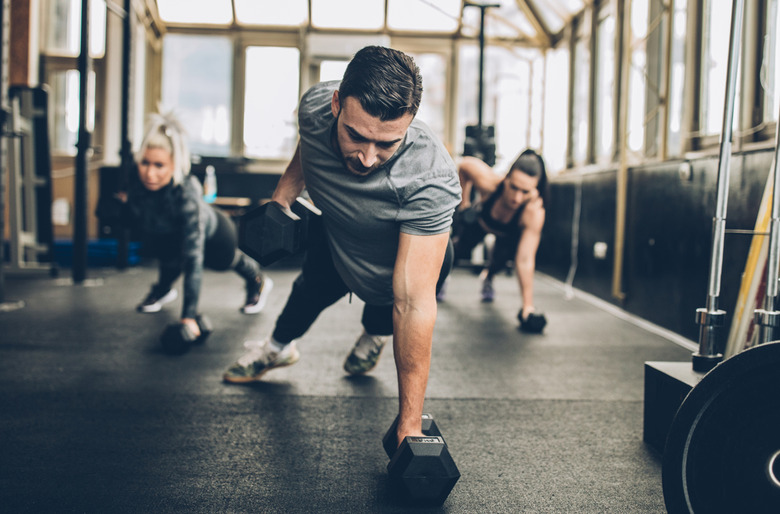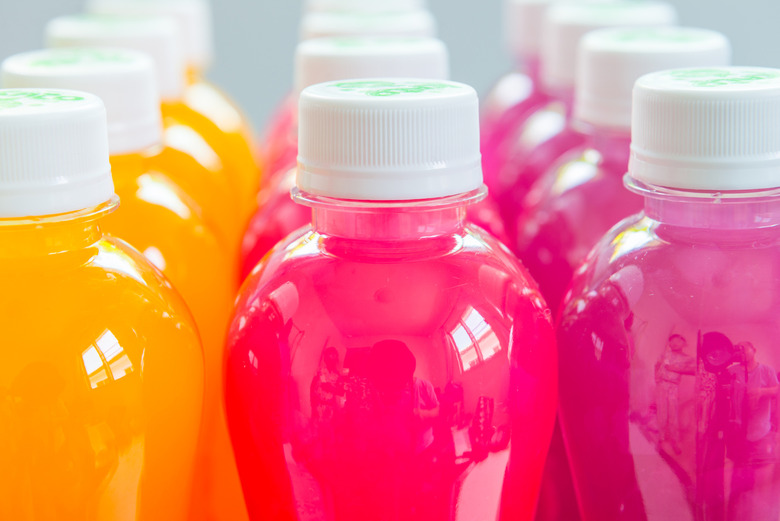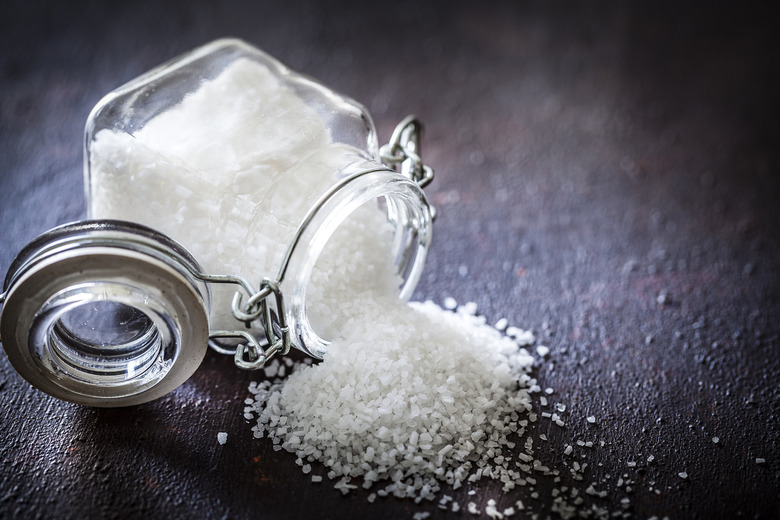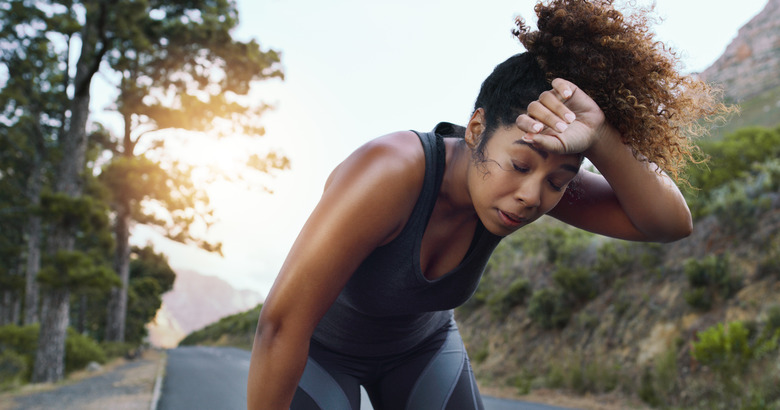9 Negative Effects Of Sports Drinks (Slideshow)
Just one 32-ounce bottle of Gatorade or Powerade can contain 200 calories and a whopping 52.5 grams of sugar. This means that chugging back a bottle of the stuff can add significant calories to your diet. So if you're drinking a sports drink as a casual athlete, you're likely drinking more calories than you're burning off.
Not a Thirst Quencher
Sports drinks don't actually quench your thirst as advertised. The reason that they may keep you more hydrated than water is because you'll actually end up drinking more. A study in the Journal of Applied Physiology found that the taste of the drinks along with salt and other ingredients found in them actually cause people to drink more. So while you may be keeping yourself hydrated, you're also consuming more calories than likely intended.
Tooth Erosion
The acid in sports drinks erodes the teeth even more than soda, and the damage is irreversible. According to a study published in the journal General Dentistry, after just five days of consistent consumption, the acid starts destroying tooth enamel that you'll never get back
Slows Dehydration
Sports drinks' biggest claim is that they can help prevent dehydration due to intense physical activity better than water. However, unless you're an Olympic athlete, drinking water will more than adequately prevent dehydration during exercise. "High-sugar sports drinks can actually slow hydration," says Fiorentino.
Hyponatremia
Hyponatremia is a serious condition that occurs when your blood has an abnormally low level of sodium. This can be caused by dehydration but more often is caused by overhydration. When Harvard studied a group of marathon runners, they found that 13 percent had some degree of hyponatremia and that those who had been drinking sports drinks were just as likely to have hyponatremia than those who had been drinking water.
No Protein
One major goal of most athletes is to build muscle, but don't turn to sports drinks if you're looking to do so. Most sports drinks contain zero grams of protein, the nutrient that is an essential part of muscle-building.
Not Enough Electrolytes
Even though sports drinks contain electrolytes, the sugar content often cancels out their benefits. The electrolytes you need will be replenished after exercise if you eat a healthy diet. Electrolytes in sports drinks don't have enough of an effect to compensate for the other negative effects they bring.
Added Sodium
On top of not being significantly effective in preventing dehydration and hyponatremia, the added sodium in sports drinks can actually be harmful to the casual drinker. Sodium is already abundant in the average diet, so adding more than necessary to the diet can actually raise blood pressure and be a risk factor for stroke and heart disease
Myriad Problems
Once again the sugar in sports drinks can cause myriad problems. "High-sugar sports drinks can cause energy levels to plummet," says Fiorentino. With so much sugar in just one bottle, sports drinks raise blood sugar levels quickly, which inevitably can cause a sugar crash, killing your energy level.
